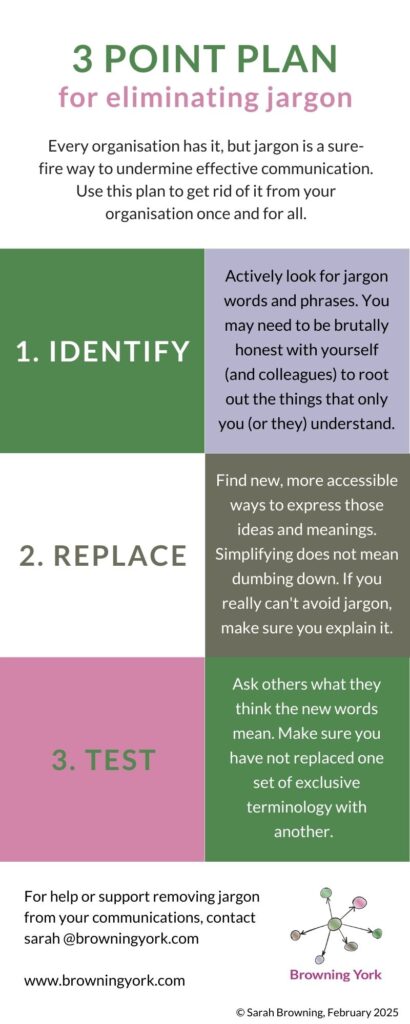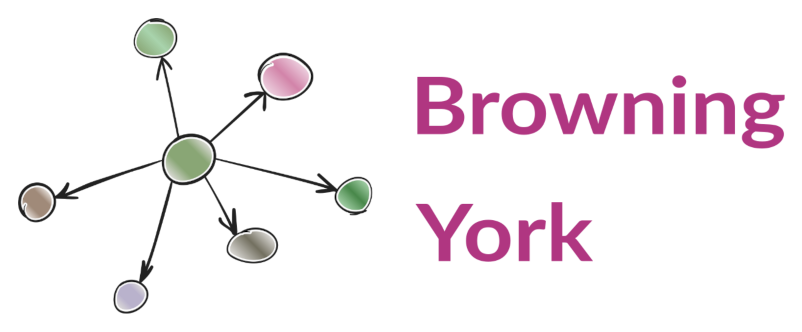Sometimes the world seems full of jargon.
For example, a few years ago I was having problems with an error message on my laptop. Not as bad as the blue screen of death, but worrying enough for me to google possible solutions. And to ask in a High Street computer store. And to speak to a mate of a mate who knows about IT.
All enquiries left me bamboozled and none the wiser, using terms that I’m not even sure were actually real words.
Then I met the wonderful Andy and Kevin from a company called Vividly Simple who explained the problem and fixed the laptop issue with minimum fuss and maximum patience. Lucky for me, their company was set up to help people like me with IT issues – without using confusing jargon.
The invoice for their monthly support service is now the first one I pay, without question!
Two types of jargon
Every organisation I have ever worked with has had its own jargon words. And more general ones that we all recognise, but few of us understand.
Broadly speaking, these fall into 2 categories:
- technical jargon (such as CSV file, onboarding or accrual rate)
- and management speak (like pushing the envelope, we need to bottom this out and deep dive).
Neither category ever improves the effectiveness of communication at an organisation.
People use these terms for a variety of reasons. They might want to show off their knowledge and demonstrate that they are an expert (and you’re not). Sometimes they’re trying to hide the fact that they’re not an expert by using words that sound impressive and no-one will dare question. It might be that using these words makes them feel important or helps them show they have status as a manager or leader.
That’s not jargon… or is it?
Or they might simply not recognise that they’re using jargon at all. This can be particularly true for terminology relating to a profession that someone has trained for.
For example, when I pointed out to a procurement manager I was working with that ‘tender document’ was not a phrase that non-procurement people would recognise, she was astounded:
“Really? But I use that every day!”
Which is exactly the point, of course.
Three point plan
Communication between groups in an organisation can be tricky enough without confusing people still further. Lack of understanding caused by words that seem designed to exclude others (even if they’re not) leads to all sorts of bad feeling, so the jargon has got to go.
Here’s my 3-point plan for eliminating jargon from your organisation (there’s an image version at the end of this blog if you want to download it for reference):
- Identify
Actively look for jargon words and phrases. You may need to be brutally honest with yourself (and colleagues) to root out the things that only you (or they) understand. - Replace
Find new, more accessible ways to express those ideas and meanings. Simplifying does not mean dumbing down. If you really can’t avoid jargon, make sure you explain it. - Test
Ask others what they think the new words mean. Make sure you have not replaced one set of exclusive terminology with another.
I would love to hear how you get on with eliminating jargon at your organisation, so do get in touch to tell me how it goes.
Until next time
Sarah
Image version of the 3-point plan:


